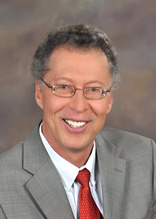Pipelines, even privately owned, are a publically regulated transportation and operating system. The question is not whether pipelines are “essential to our society.” Pipelines are already integral to the country: the US had over 1,700,000 miles of oil and gas pipelines in 2014, and North Dakota had 8,080 miles of pipelines in 2011. When a pipeline leak occurs, it only deflects from the problem at hand to discuss a pipeline’s place in modern society. The media puts its attention on the statements of politicians after a pipeline leak has occurred. Such media attention does address the question of how to manage the risk. Operating systems will malfunction. The process for legally authorizing operating systems should not. To paraphrase Norman Vincent Peale, the problem with most publically regulated systems is that they would rather be ruined by praise than saved by criticism.
In 2013, a pipeline operated by Tesoro Logistics began leaking thousands of barrels of oil into wheat fields. By the time the leak was caught and stopped, over 840,000 gallons of crude oil spilled into North Dakota. Tesoro Logistics originally estimated that the cleanup would take around $4 million. Two years later, the costs have passed $40 million and continue to rise. Oil spills are not going away – as more pipelines are built, spills are only increasing. The relevant question should be how regulated pipeline leaks will be cleaned up, and who will pay for them.
Under both Federal and state laws, the party responsible for a leak is the one responsible for cleanup. Usually a company like Tesoro Logistics prefers to take care of the cleanup itself. Not only does this help soothe public relations problems resulting from a leak, but it helps the operator control the costs. While North Dakota’s Department of Health is supervising the cleanup, Tesoro Logistics manages the contractors for the cleanup. But a pipeline operator causing a spill may not always be willing or able to clean up a spill. The liable operator could be bankrupt, dissolved, or perhaps not have the money. In these cases, clean up cannot wait for years of court cases or bureaucratic lethargy. The money for a cleanup needs to be there, ready to be used.
The state tells us that ‘them what operates a car must financially assure the public against the risk of its operation.’ Thus, the state has mandatory car insurance. North Dakota can require operators to provide financial assurances of their ability to clean up a spill, but the state can only require such insurance after a spill has already happened. The North Dakota Department of Health “may require insurance coverage or other financial assurance for any additional environmental monitoring or remediation that may become necessary on the property…and must require such…when the projected cost of an active monitoring or remediation program exceeds five hundred thousand dollars.” This requirement applies only to “real property contaminated by regulated substance or other pollution or contamination.” In other words, the state can only require financial assurances for land that has already been contaminated. What about money to help before a spill occurs?
North Dakota also maintains the Petroleum Release Compensation Fund. Unfortunately, this fund is not there to help landowners damaged by oil spills – the PRCF is a fund designed to “reimburse an eligible owner or operator for ninety percent of the costs of corrective action.” In other words, the PRCF is a fund to pay back the operators for money they pay cleaning up their mistakes. The PRCF is funded by oil companies, not taxpayers. And landowners can recover from the fund, but only if very specific requirements are met: the pipeline must have complied with all state and federal rules, the Dept. of Health was notified properly, the operator must have already begun paying the costs of corrective action, and the operator must be cooperating fully. Why these requirements? Because the PRCF is not designed to protect landowners and reimburse them for damages – the PRCF is designed to help companies defray expenses. The only reason the PRCF includes the capability to pay landowners for damages is so the pipeline operator won’t have to do it themselves. The PRCF does help encourage companies to come clean and take responsibility for leaks, knowing that they will be paid back from the fund. But the fund does not solve the problem of providing ongoing financial assurance, also referred to commonly as insurance.
The best fund available to aid the state’s immediate spill response is the Hazardous Chemicals Preparedness and Response Fund (HCPPF). This fund is created through an annual fee paid by facilities housing hazardous materials ($25 per hazardous material housed, with a $475 cap) in the state, as well as other appropriations by the legislature. These fees are distributed between the North Dakota Department of Emergency Services and the many Local Emergency Planning Committees, and pay for training, equipment, and disaster relief. This kind of fund is a good start, and ensures that North Dakota has equipment and trained professionals in disaster relief ready to move when a spill is detected. But the limitations on fundraising for the HCPPF means that if a leak like Tesoro Logistic’s occurs, the HCPPF will not be sufficient to manage the cleanup effort – at least, not without taxpayer monies coming from the state to fill the gaps. And landowners should not be forced to pay for oil spills.
This is not to say that North Dakota would be alone in a crisis. Both the Coast Guard and the EPA have trust funds in place to help states and the federal government. But the Coast Guard’s fund only applies to spills into navigable waters, and cannot apply to cleaning up spills on land. Meanwhile, the EPA’s Leaking Underground Storage Tank Fund is funded with a tax on motor fuel – a tax paid by private citizens, not the companies causing the damages in the first place.
A better solution is required to ensure that those who cause the damages pay for it. Waiting until after a spill happens to look for money to fix it cannot be how pipelines are managed. This is especially troublesome when so many spills go undetected for months, like the 3 million gallons of fracking brine that leaked into the Blacktail Creek in 2015; the pipeline had been leaking for over three months before it was detected. The very same pipeline leaked another seven thousand gallons of brine this January. Pipeline spills are not going away. North Dakota reported approximately 1,400 hazardous material release incidents in 2014 alone. Financial assurances for spills must be required before the damage happens, in amounts sufficient to cover the hundreds of spills that happen every year. The legislature needs to create a modern statute addressing financial assurances for pipeline leaks.
David Ganje practices law in the area of natural resources, environmental and commercial law in South Dakota and North Dakota. His website is Lexenergy.net





